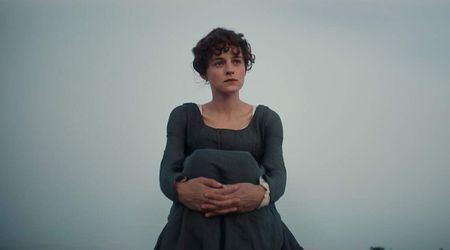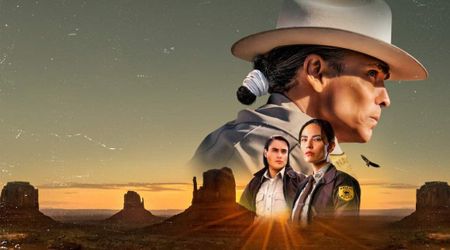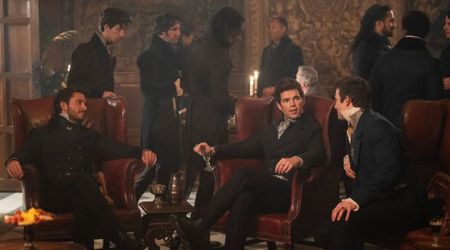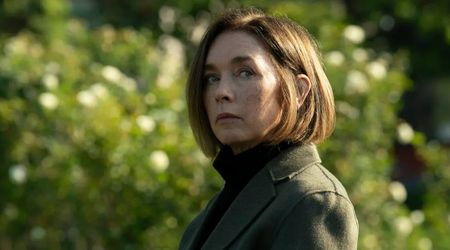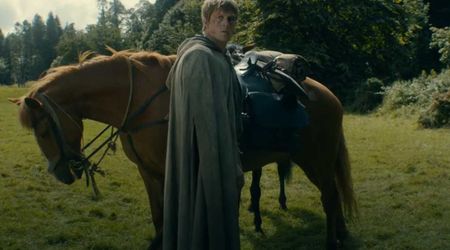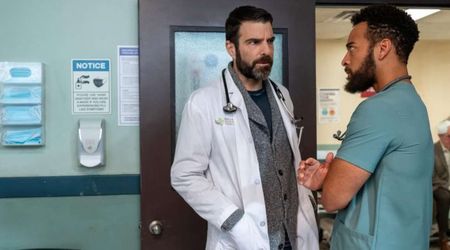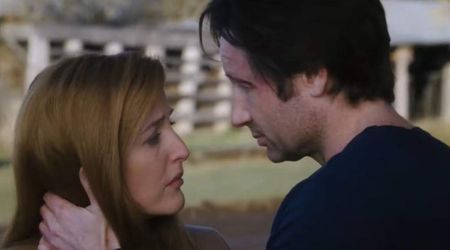Netflix's The Alienist takes a peek at the origins of criminal psychology

Netflix has been putting out a flurry of brilliant original content over the past year or so but some of them stand out more than the others. When it comes to the dark, gritty, and suspenseful content that the audience of today likes to devour, the streaming giant has proven their track record in making good TV series and films. The Alienist is the most recent example of a crime show on Netflix that is more than just a name.
The Novel
Adapted from the acclaimed 1994 novel of the same name by Caleb Carr, a military historian and author, the story of The Alienist revolves around a psychologist (or alienist as they were called in the 1800s) Dr. Laszlo Kreizler and his ad hoc team of professionals looking into a series of gruesome murders committed against young male prostitutes in New York City.

The story is based in a time when London had just been gripped by the meticulous butchering of prostitutes by the infamous serial killer, Jack the Ripper. The novel is also written in the first person from the point of view of The New York Times illustrator, John Moore.
Although the story of Dr. Kreizler and his companions is a work of fiction, the events surrounding them are all based in fact. The NYPD Police Commissioner who asks them to conduct their private investigation into the serial killings is none other than Theodore Roosevelt, the soon-to-be 26th President of the United States. J P Morgan makes an appearance as well. The Statue of Liberty is just about being completed and New York City looks like how it would have in the 1890s.
The TV Series
In the Netflix adaptation of the novel, Dr. Kreizler is played by Daniel Brühl and he is an accomplished alienist. In this time in history, the study of psychology was not looked upon with great favor. The study of criminal psychology was just being introduced into the scene and the character played by Brühl is one of the first men to attempt profiling a mysterious killer on the loose in the streets of New York City.

Playing the role of The New York Times illustrator John Moore is Luke Evans. Dakota Fanning plays the role of Sara Howard, the first woman to work in the NYPD as secretary to the police commissioner, Theodore Roosevelt, played by Brian Geraghty.
The show has its usual share of mafia affiliations to all the brothels where the boy prostitutes, the victims for the serial killer in the show.
Roosevelt is under a lot of pressure from New York's 1% and the mayor to solve the cases quickly but without any understanding of how or why the murders are being committed, he is just a good man with strict morals trying to live an honest life.
Dr. Kreizler is keen on investigating the crimes himself because of a connection to a case he had worked on in the past. Turns out, the serial killer seems to have the same MO when it comes to killing his victims. The alienist sends the illustrator to the scene of the first crime and his fears are realised when he sees the drawings of the victim.
This makes him and Moore go to Roosevelt with the proposition that they form a team of some sort to profile the killer, like how criminal investigators do today. On the way, their team grows with the addition of the secretary Howard, and the Jewish fraternal twins, Marcus and Lucius Isaacson, the detective sergeant coroners who work for the NYPD.
Together with this team, we see the birth of criminal psychology to help government agencies identify serial killers using the tools of profiling and the forensic analysis method of fingerprint identification. The show is, in and of itself, a good look into the history of criminal and forensic psychology with regard to solving crimes and the history of the city of New York itself.

The dark underbelly of the now-powerhouse city is very reminiscent of many stories that have been dramatized for the screen. Audiences watching these today seem to be in awe of the characters they portray due to the very obvious harsh living conditions of the people of that time and how even something as simple as getting a perfect fingerprint off a pocket watch was so much more exciting then as opposed to how it is now.
The entire season is built around the team trying to catch only one major serial killer using all the new theories and methods they come up with such as figuring out his past and the subtle nuances of his character. People around them always seem to give them looks of disapproval especially when Dr. Kreizler is with them but that doesn't deter the team from trying to stop the murderer from killing again.
Along the way, we also start to learn a little more of these characters which is an obvious build up to the second season of the show.
You can almost compare Dr. Kreizler to Sherlock Holmes even if it's only in the way they try to overcome their own demons while trying to catch a person who appears to be their nemesis. John Moore, in turn, is a lot like Dr. John Watson, Holmes' trusty sidekick. Another parallel that can be drawn between Watson and Moore is that both their first names are John. - insert shocked emoji here - I know right?
The origins of criminal psychology and why The Alienist is like a dramatic history lesson
The thing about this series that really makes you want to pay attention to the investigation going on is the show's take on the technological advances when it came to psychology and criminal psychology.
Real-life investigator for the FBI, Robert Ressler, the man who inspired the creators of the series Mindhunters, and the man who inspired Carr himself to write this book, only coined the term "serial killer" in the 1970s. Although the term only started being widely used almost a century after the murders in the series happens, Carr also writes in the acknowledgements of his book that the act of serial killing is not a new concept.
He wrote: "While doing the preliminary research for this book, it occurred to me that the phenomenon we now call serial killing has been with us for as long as humans have gathered together into societies."

One can assume that the rise of serial killers at a time of strife in major cities is what birthed the study of the criminal mind today that we know as criminal psychology.
The whole theory behind why this particular field of study was born seems to revolve around the fact that serial killers were getting too smart for conventional means of policing and that if you wanted to catch a smart killer, you would have to start thinking like one.
In this effect, the definition goes something like:
Criminal psychology, also referred to as criminological psychology, is the study of the wills, thoughts, intentions, and reactions of criminals and all that partakes in the criminal behavior.
It's pretty straightforward and it tells you exactly what the field of study is supposed to be but what it doesn't tell you is that one cannot just read minds and figure out where a murderer is hiding.
To be able to use criminal psychology to its maximum potential, a person who is "hunting" a serial killer needs to do something basic first. You need to form a profile of the person you are after. The art of profiling did not start in real life until the 1940s but in The Alienist, we get to see Dr. Kreizler and his team coming up with more and more on the killer with every episode goes by.
The whole purpose of this exercise is to be able to think like the serial killer so that you can narrow down possible locations and/or victims who will be next on his list at the same time or even before he/she is able to think it up themselves.
Deep diving into a dark mind is a very dangerous sport and many a profiler even today has to be very careful not to be consumed by the work.
Dr. Kreizler, Moore, Howard and the Isaacson's work around the clock to try and find this man before he takes another boy prostitute off the streets. The scary part about the killer featured on this show is that he not only takes children but the way he mutilates their bodies speaks volumes of personal anguish.

The fictional doctor, like his real-life counterparts in the FBI Behavioral Analysis Unit and other similar agencies, all had to start thinking like the serial killer he was hunting so that he could determine where he would strike next. The Isaacsons, who are twins fascinated by the dead (one by the bones and the other by the actual body), come up with the whole concept of identifying killers using the fingerprints in the show.
All these ideas are initially met with disdain and the role corruption plays in this series to try and cover-up the crimes is very much like it happens at present.
The show gives the audience all the time in the world to take in the eerie vibes of New York in the 1890s with the dark color grading and the wide angle shots. This seems to be a trend in the present era of filmmaking where everyone wants to be gritty with the look of their work but it cannot be denied that this look suits the content of this show perfectly.
From stellar performances by all cast members, the production design of all the sets, all the way down to the costumes and the props, we as the audience immediately get transported to the mean streets of New York at a time when being a boy prostitute was almost normal and terrifying because you could be the next victim.
It's almost like being there with them as you see them going through daily life just trying to stay alive by doing whatever it takes to survive.
The heinous crimes that took place in the The Alienist, which was the serial murders of the young boy prostitutes, did not actually happen in real life but the events that took place around those murders had roots in fact.
Luke Evans told EW in a post-series interview: "Manhattan at that time was a melting pot of culture and religion and races, and I think to honor the book and to honor Caleb Carr’s authenticity was part of the draw to the production, to make it as real as possible."
The author of the novel Caleb Carr had already complained that the general misconceptions that the new forensics related shows that have been made have made it look like CSI investigators are the only ones that matter.
He told LitHub in an interview: "There are a lot of airtight criminal cases with eyewitnesses and other evidence but if there is no high-tech CSI, the jury won’t buy it."
This is very true in the present because people have just blindly accepted that this is how it always was but that is not the case as The Alienist puts it. Even now psychologists are not really considered doctors in their field by many other doctors themselves.
The show itself has it's own ups and downs with some episodes giving you a feeling that the pacing is too slow or maybe too fast in some cases but it's a good adaptation of the novel and as Evans said, it felt very real. Many people even thought that the grisly murders shown in the show were based on a real killer from that time but none of that matters when you get into the entire investigation process that Dr. Kreizler's team follows. Think Criminal Minds but in the 1890s.
In other words, if you want to get a glimpse of how this fascinating field of study came to be an integral part of criminal investigation organisations around the world today, it would be a good idea to check out the series on Netflix.


